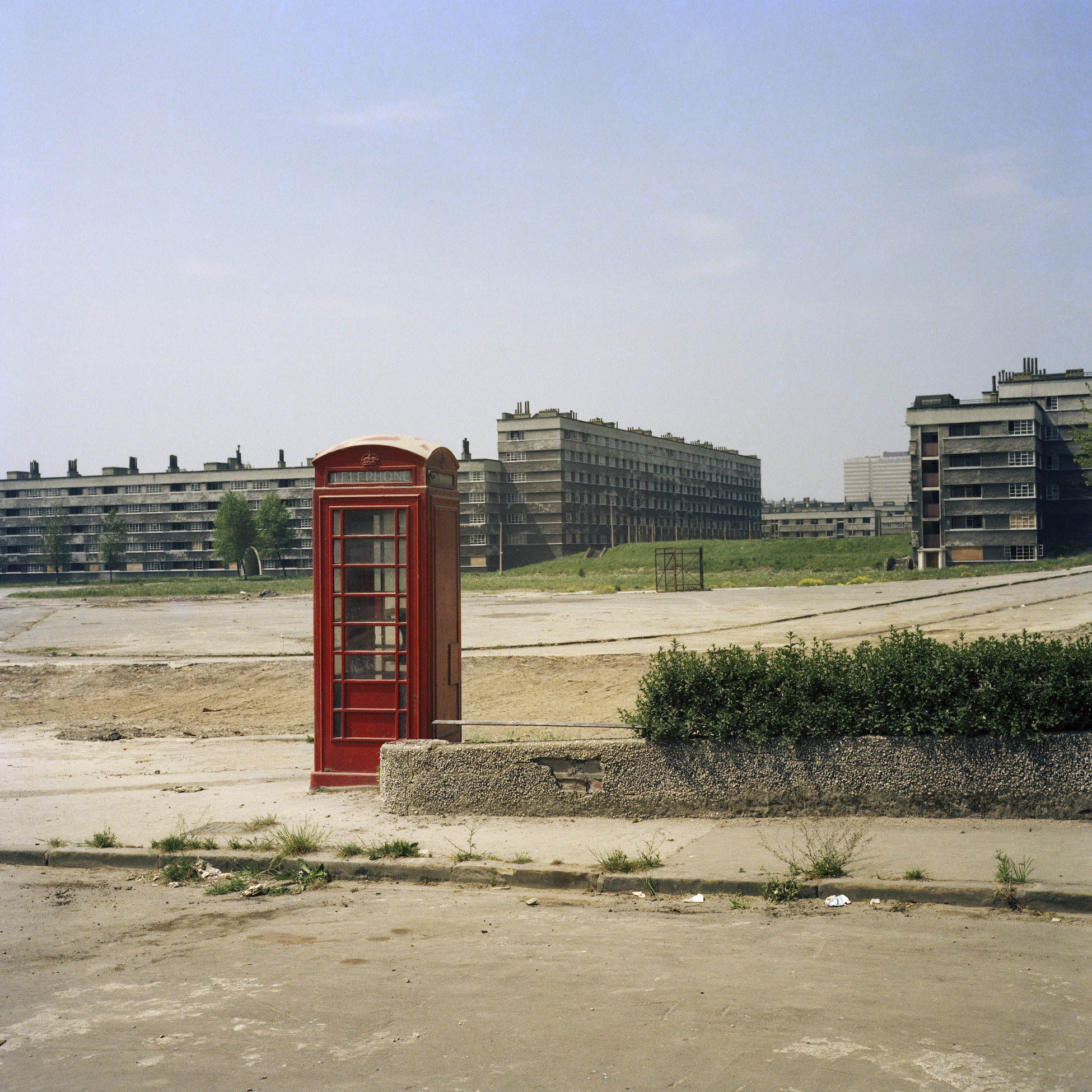The Kitson House telephone, Quarry Hill Flats, 1978. All images © Peter Mitchell
After documenting societal change in the UK for over 50 years, the colour pioneer receives a well-deserved retrospective in the city where it all began
This summer Peter Mitchell gets a long-overdue retrospective in the UK – in the gallery where he showed his first exhibition. Nothing Lasts Forever is at Leeds Art Gallery until 06 October and includes work made over half a century, much of it in Leeds itself. Documenting the changes in Britain during this period, Mitchell’s work added a conceptual layer to photography long before the medium was accepted in the art world.
Mitchell grew up in a working-class family in south-east London and left school at an early age; initially training as a cartographic draughtsman, and working for the Ministry of Housing and Local Government, he won a place at Hornsey College of Art in 1967, just as the students were organising radical, anti-establishment sit-ins. His student years also took in hitch-hiking trips across Europe and the US, at the height of the hippy era.
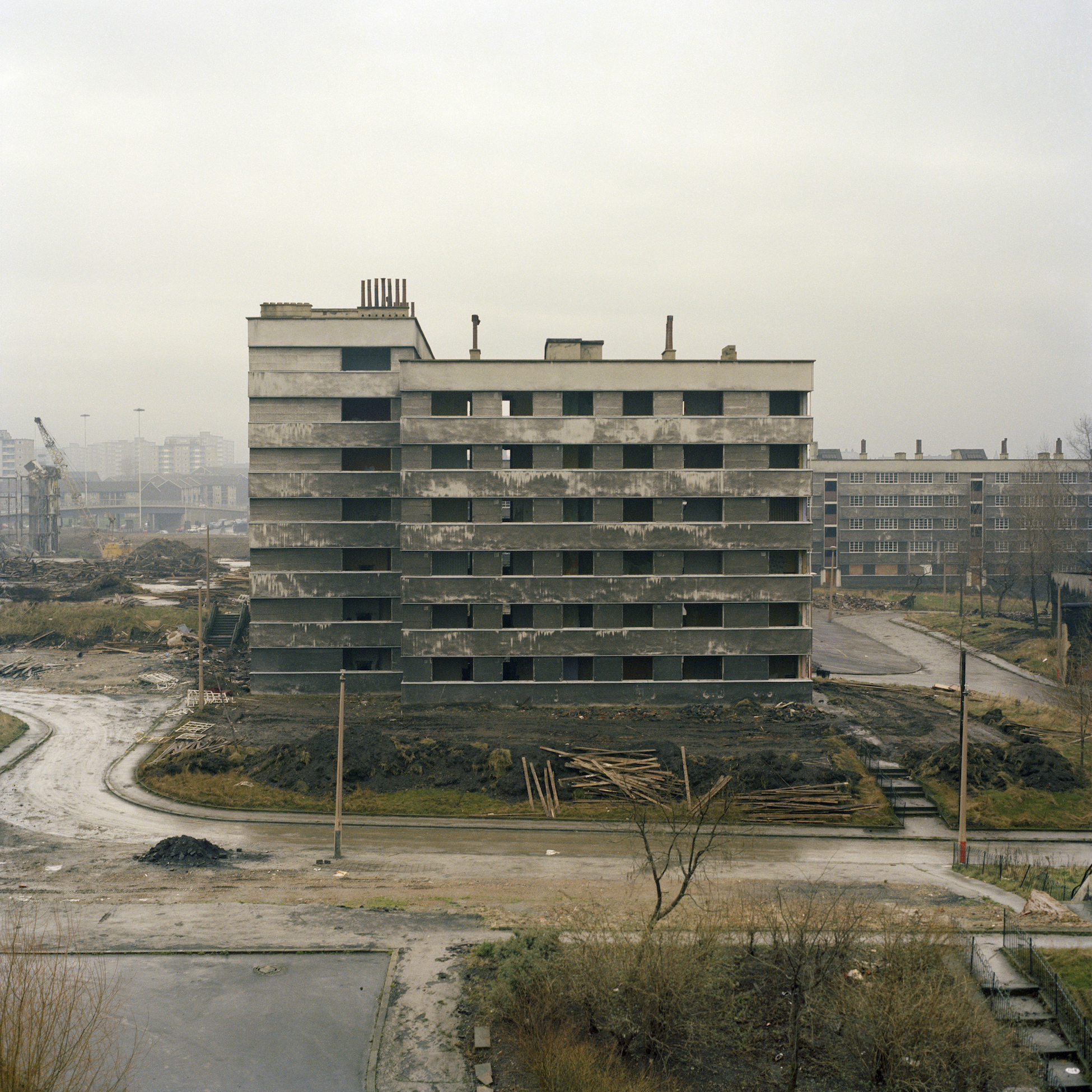
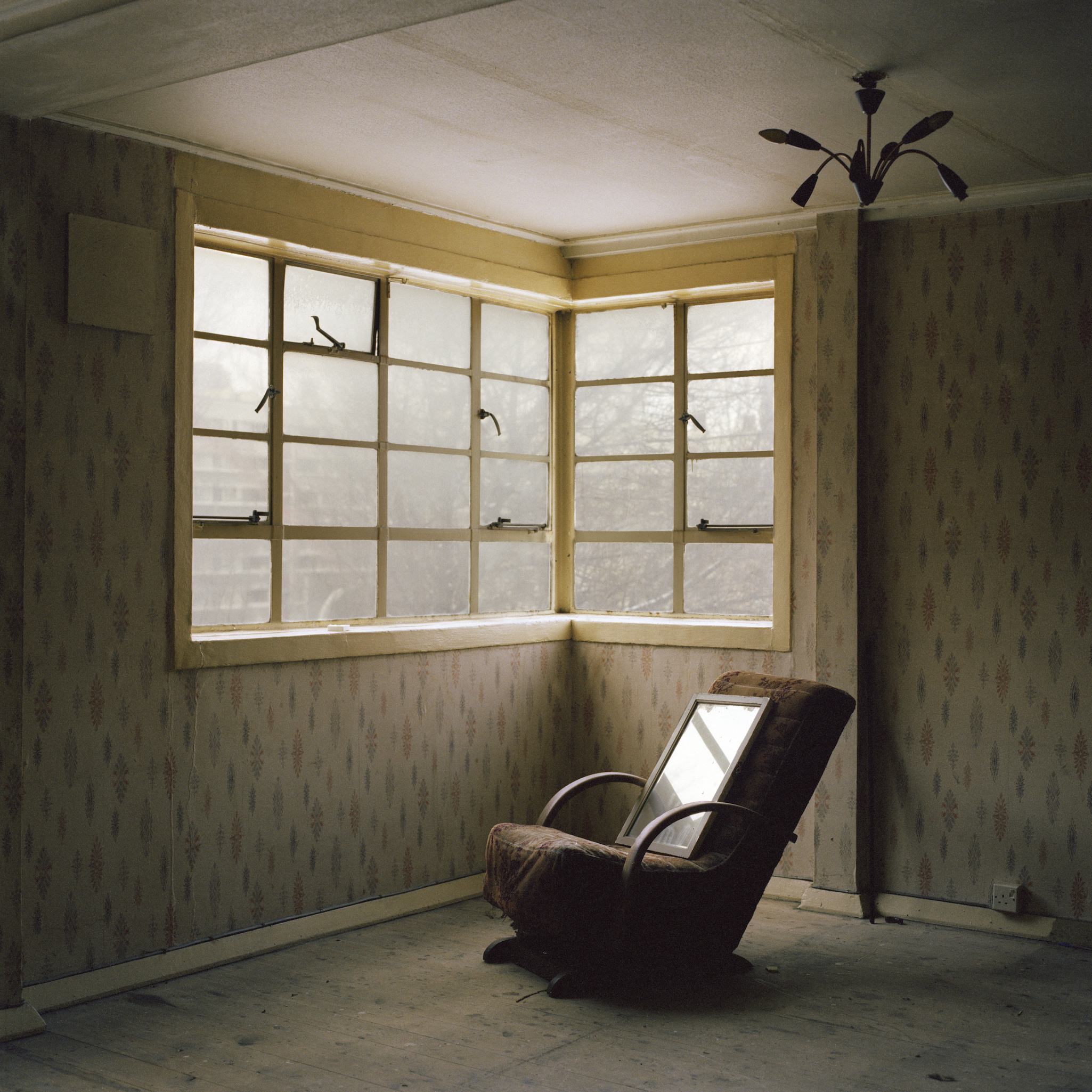
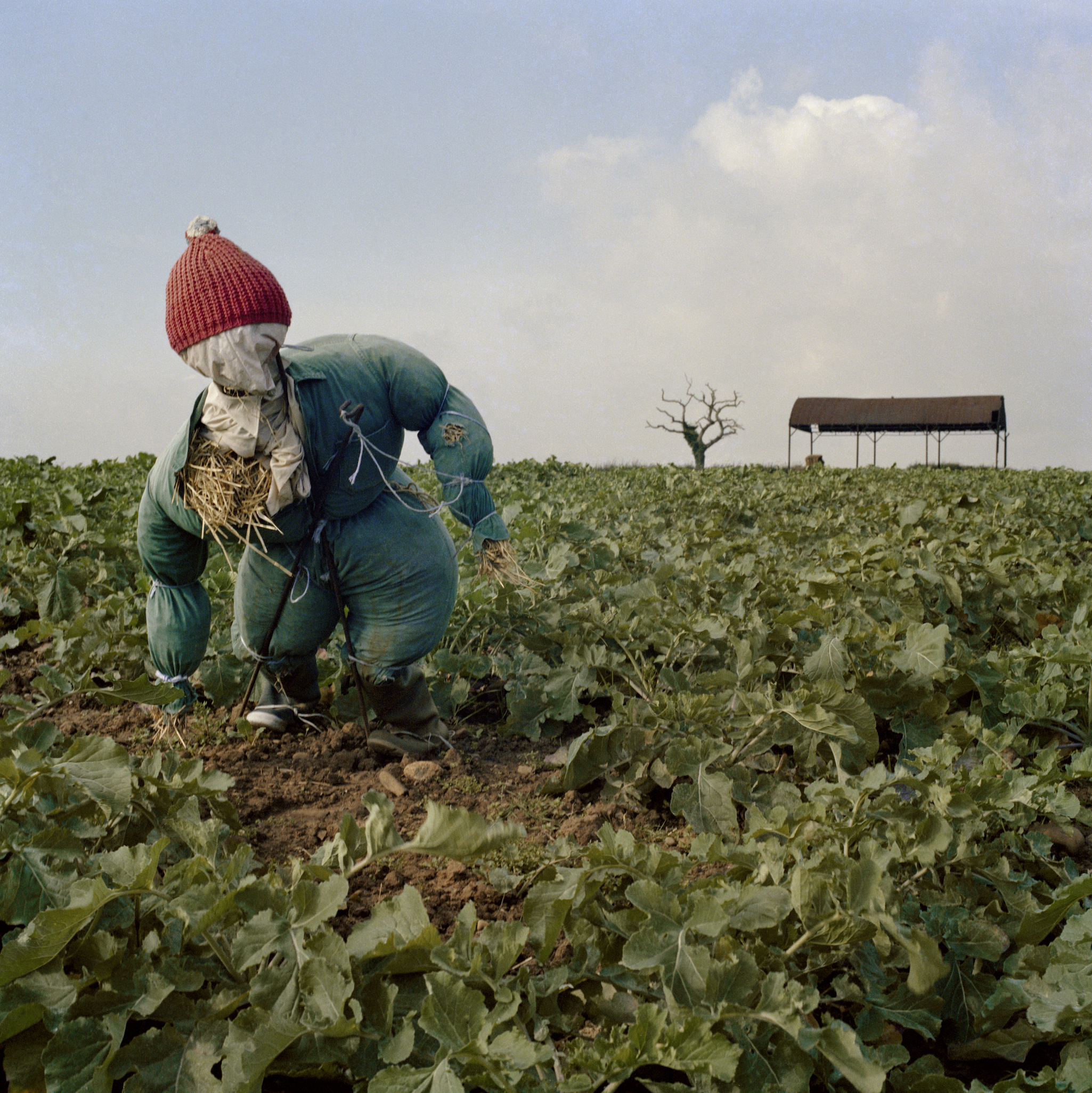
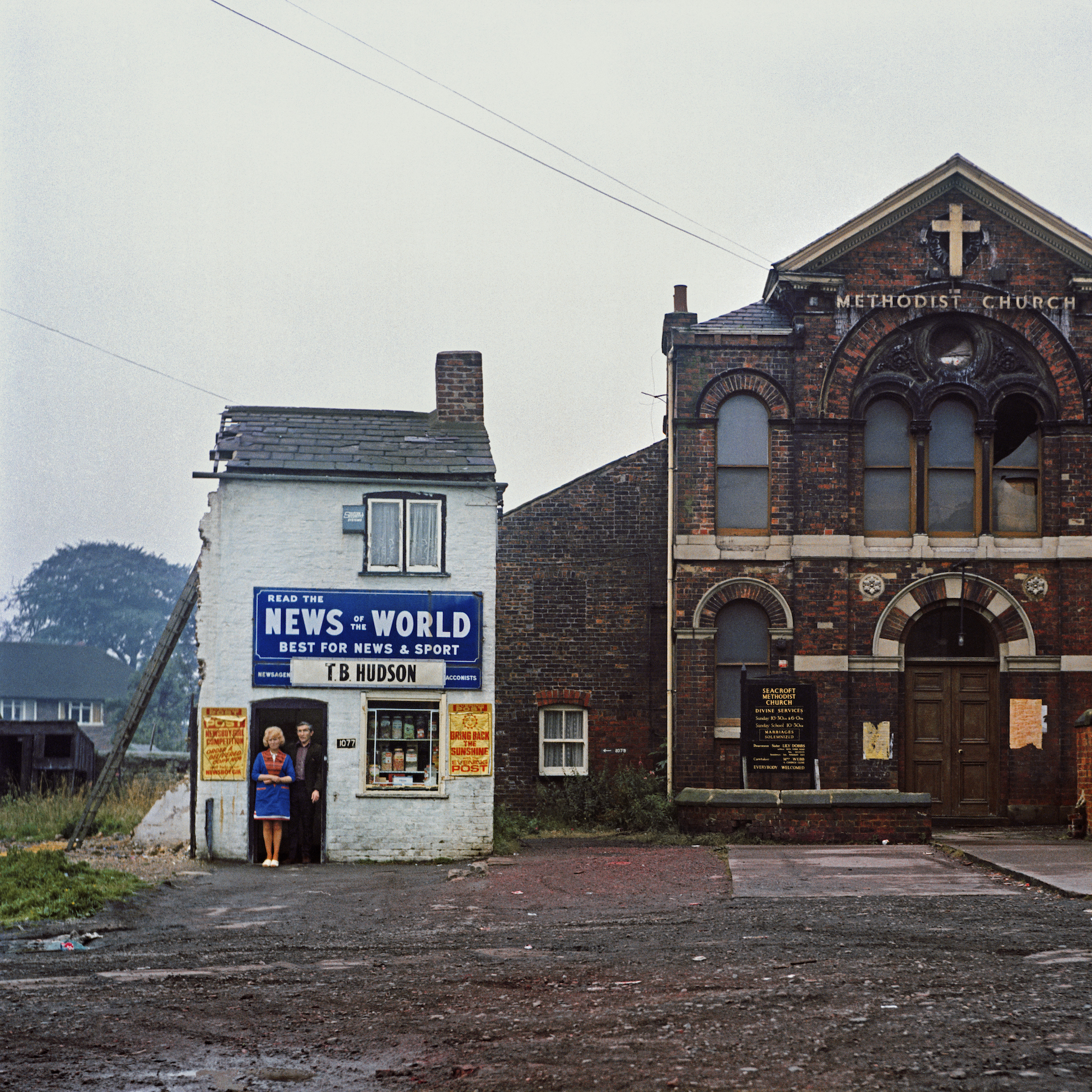
“When I arrived in Leeds in the early 70s, [slum] clearances seemed to be in progress over the entire city”
In 1972 Mitchell went to Leeds to visit friends who were squatting in the northern British city. He never left, getting a job as a truck driver and setting up The Winged Cobra Workshop, in which he made fine art silkscreen prints. He also started to take photographs, capturing a rapidly changing place which he got to know inside out on his delivery jobs. “When I arrived in Leeds in the early 70s, [slum] clearances seemed to be in progress over the entire city,” he wrote later in Memento Mori, a ground-breaking book on Leeds’ once proudly modernist, later abandoned Quarry Hill estate.
Mitchell’s first show at Leeds Art Gallery was in 1975, and he printed leaflets for it in his workshop which read: “An Impression of the Yorkshire City of Leeds: Being – a plain person’s guide to the discovering and navigating of the City by the less dramatic but equally interesting Features of the Landscape”. In 1979, Mitchell staged an exhibition titled A New Refutation of the Viking 4 Space Mission at Impressions Gallery, York; the first colour photography show in the UK, it gathered documentary shots taken on the street in Leeds and beyond.
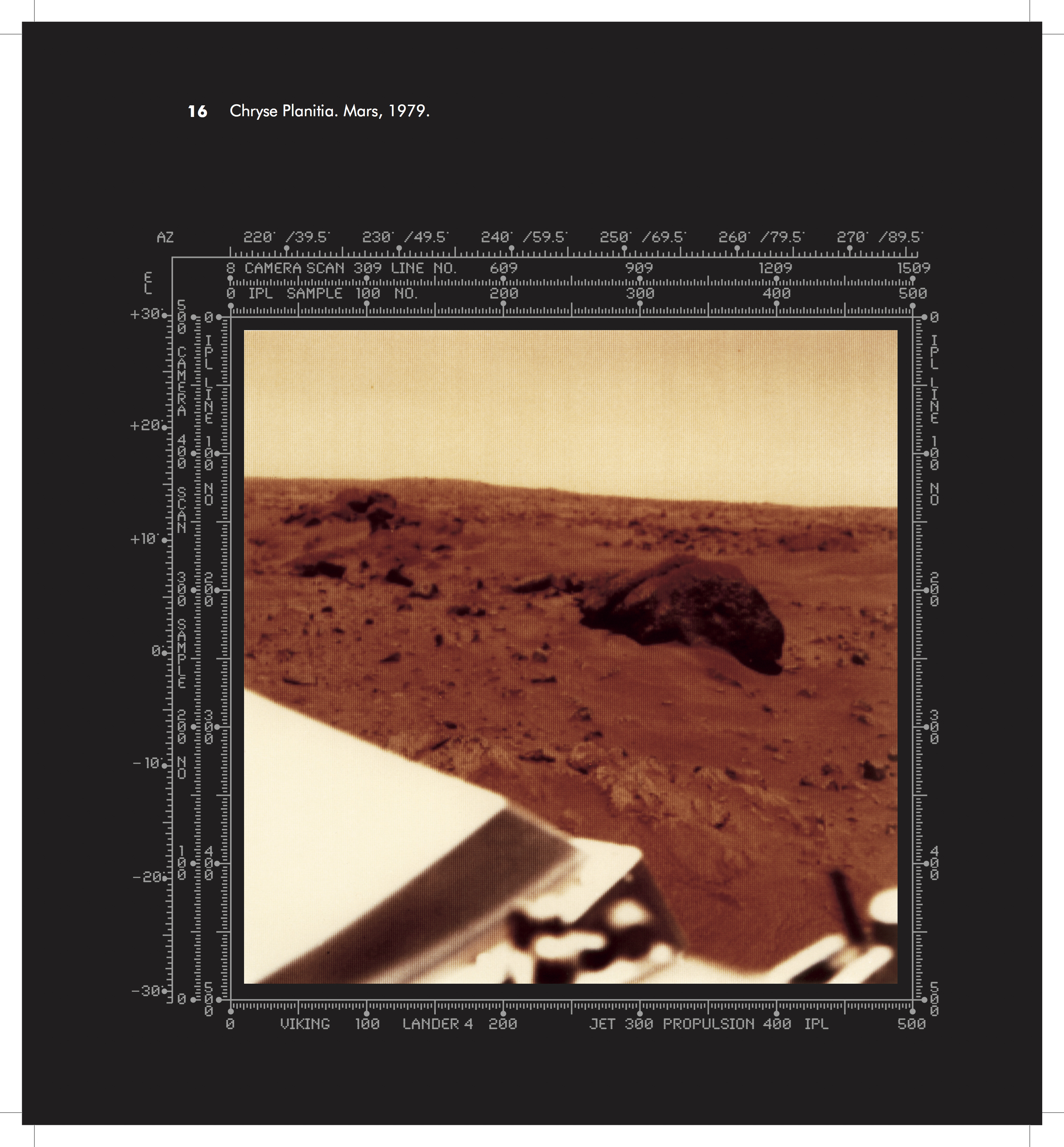
Inspired by the concept of Viking landings on Mars, the exhibition also included fake co-ordinates and measurements around each image, suggesting an alien-eye, quasi-scientific view of Britain. “This show was so far ahead of its time that no-one knew exactly what to say or how to react, apart from with total bewilderment,” Martin Parr later said. By 2016 the rest of the world had caught up and A New Refutation was shown again at Les Rencontres d’Arles.
Mitchell’s magnum opus is Memento Mori, however, a long-term work combining images of Leeds’ fading 1930s housing project with a deep dive into archival material on it, and his own diary entries. The abandoned estate was demolished in 1979, but not before Mitchell attached Morse Code flags to it spelling out ‘GOODBYE WORLD’. Mitchell’s book of this work was published in 1990, long before the current appetite for compiling photobooks.
More recently, Mitchell established an ongoing relationship with RRB Photobooks, and republished Memento Mori and various projects, plus created new books. Published in 2016, for example, Some Thing Means Everything to Somebody combines images of Mitchell’s wayward collection of objects with his eccentric explanations of why they are important.
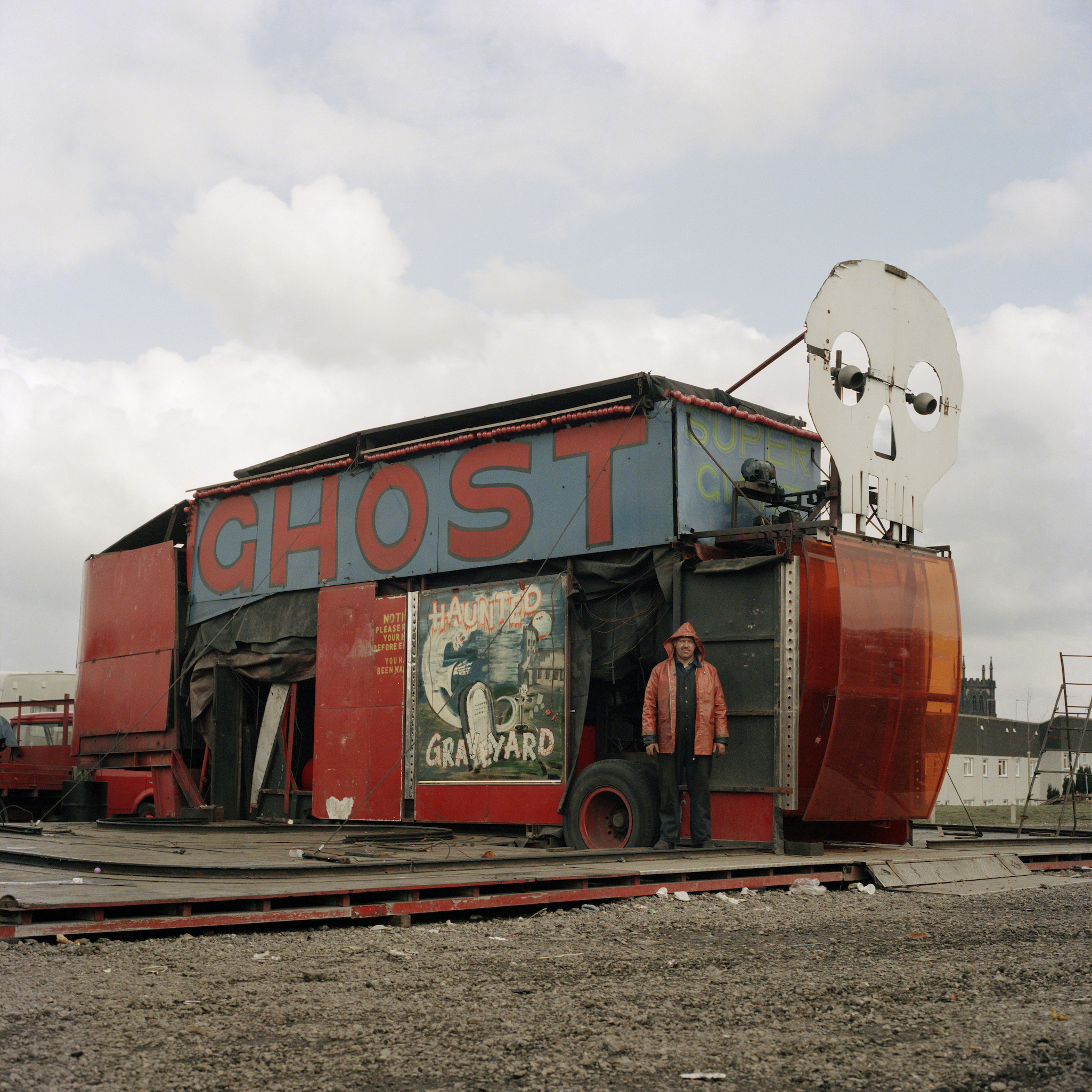
These major works are all on show at Leeds Art Gallery, as well as less-known but equally interesting series, including Mitchell’s many images of scarecrows (some of which appear in Some Thing Means Everything to Somebody) and his long-term work on a fairground ghost train. Apparently hand-made by a man called Francis Gavan, this ghost train visited Leeds every year and, when Gavan retired it, Mitchell bought its eye-catching skull.
Elements of the ghost train and other artefacts Mitchell has saved over the years will also be in the new exhibition. Although he is perhaps a cult figure rather than a household name, the exhibition should offer Mitchell the national recognition he deserves. It is a credit to Leeds Art Gallery that it is hosting his mordantly titled retrospective in his lifetime.
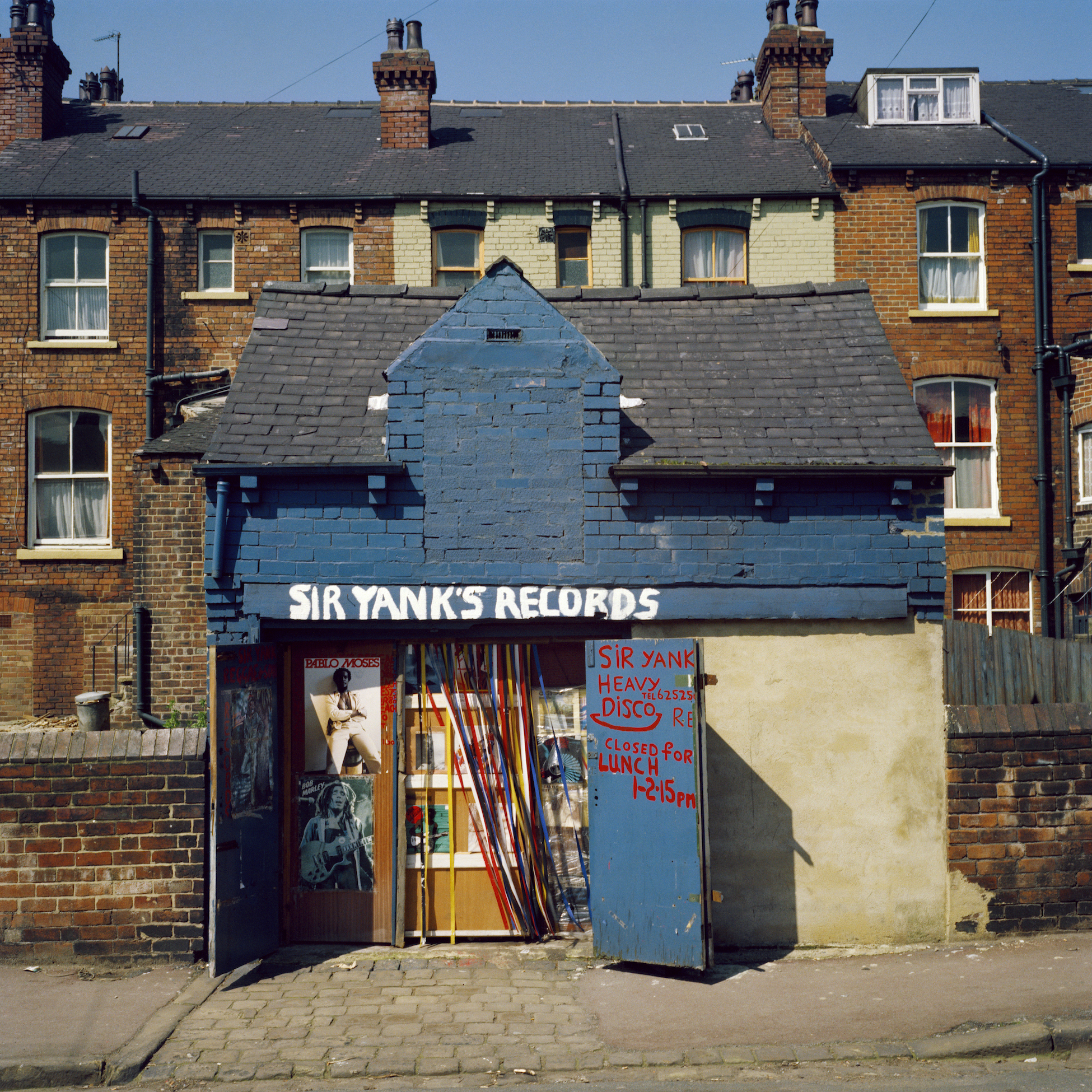
Nothing Lasts Forever is at Leeds Art Gallery, West Yorkshire, until 06 October 2024. The accompanying book is out now (RRB Photobooks)

